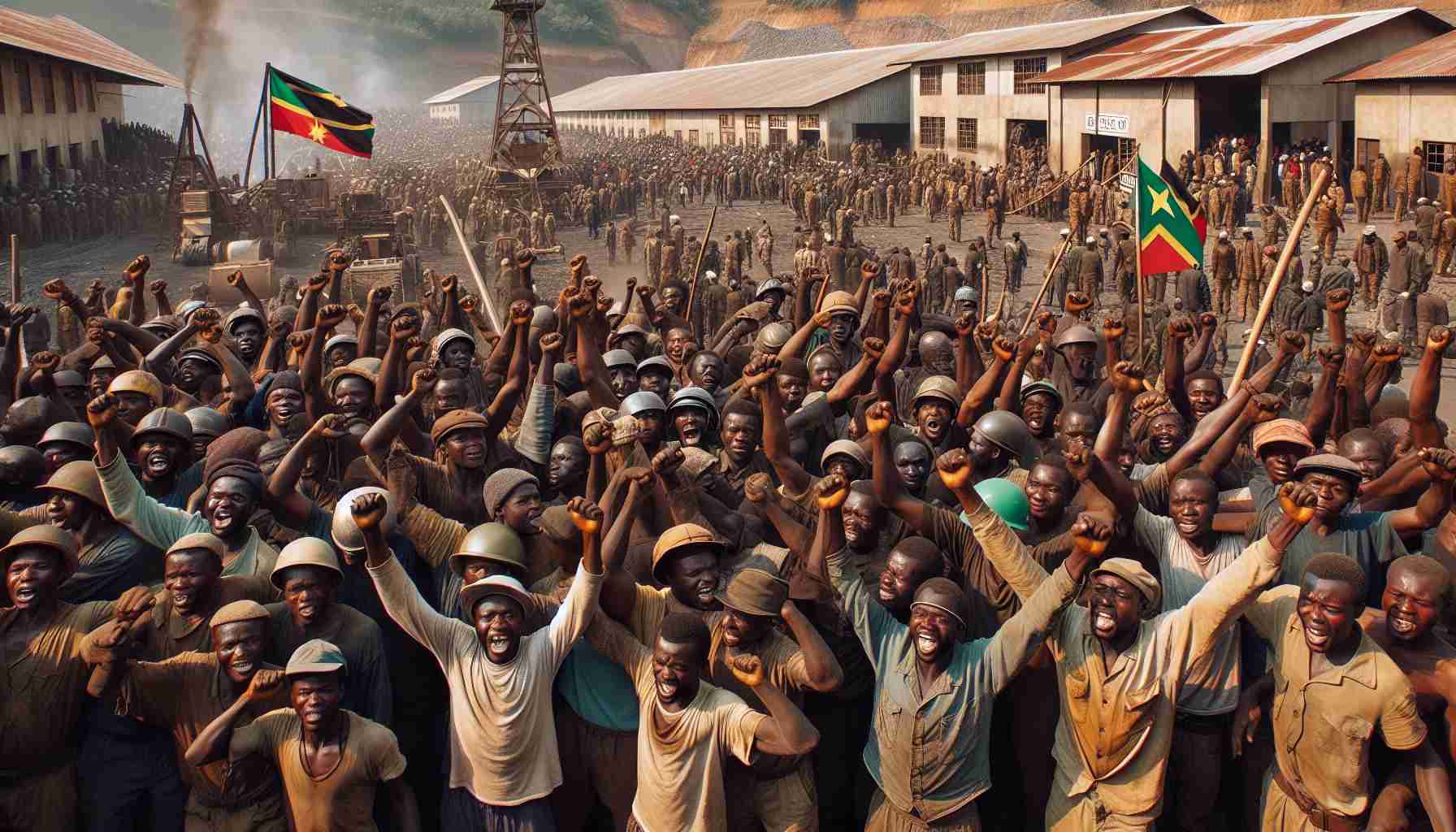A significant development occurred this week in eastern Congo, where M23 rebels took control of Rubaya, a town pivotal for its mines that supply materials essential for smartphone production. The M23 group proclaimed that they had “liberated” the town, as per a recent announcement distributed to news outlets.
The conflicts in eastern Congo, spanning multiple decades, have spawned a severe humanitarian situation, considered among the most dire globally. Over a hundred armed factions wrestle for dominance over this resource-laden terrain, which lies adjacent to Rwanda. Accusations of human rights abuses such as mass murder, sexual violence, and various other atrocities are rampant amongst these groups.
With the ongoing turmoil, close to seven million individuals have been uprooted, forcing them from their homes. These displaced populations often find themselves isolated from humanitarian assistance, exacerbating an already critical crisis.
As these events unfold, the international community continues to watch with concern, seeing the Eastern Congo’s rich mineral resources as both a curse and a key to the region’s potential prosperity. The recent takeover of Rubaya by M23 highlights the delicate balance of power in an area where the stakes are inextricably linked to the well-being of millions and the functionality of modern technology.
Relevant Context to the Rebel Faction Capturing Strategic Mining Town in Eastern Congo:
The conflict in eastern Congo is deeply intertwined with the region’s vast wealth in minerals, such as coltan, gold, tin, and tungsten, which are used in electronics like smartphones and computers. The M23, also known as the March 23 Movement, is a rebel group composed of soldiers who mutinied from the Congolese army in 2012. The group claims to fight on behalf of ethnic Tutsis and has been involved in numerous conflicts in the region, often citing the government’s neglect and mistreatment as their reasons for rebellion.
Key Questions and Answers:
– Why is the control of mining towns significant in Eastern Congo?
The control of mining towns in Eastern Congo equates to control over valuable resources that can fund armed groups and prolong conflicts.
– What are the implications of the M23 capturing Rubaya?
The M23’s capture of Rubaya risks further destabilizing the region, jeopardizing the security of civilians, and potentially increasing the global prices for certain minerals.
Challenges:
The main challenges include tackling the complex mixture of local and regional politics, addressing the root causes of the conflict such as poverty, ethnic tensions, and lack of state authority, and ensuring that mineral wealth benefits the broader population rather than fueling violence.
Controversies:
Accusations of neighboring countries, particularly Rwanda and Uganda, being involved in the conflict by supporting the M23, have caused international controversy. Both countries have previously denied any involvement.
Advantages and Disadvantages:
Advantages:
– Control over mines can afford the group economic power and leverage in any peace talks.
– The M23 may argue that their control brings stability to the areas they capture.
Disadvantages:
– Increased conflict can lead to a humanitarian crisis with displacement of civilians and human rights abuses.
– The instability can disrupt the supply chain for minerals, affecting the global market.
– There’s a risk of international sanctions which could further impoverish the region.
For further legitimate information on the conflict in Eastern Congo, you may refer to these international bodies and news organizations:
– United Nations
– Human Rights Watch
– Al Jazeera English
– BBC World News
It’s important to note that these URLs are subject to change and should be verified for accuracy before being used for any serious purposes or research.
The source of the article is from the blog mendozaextremo.com.ar
